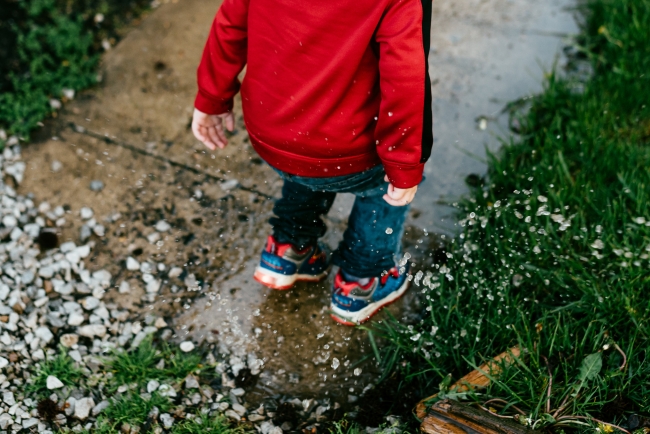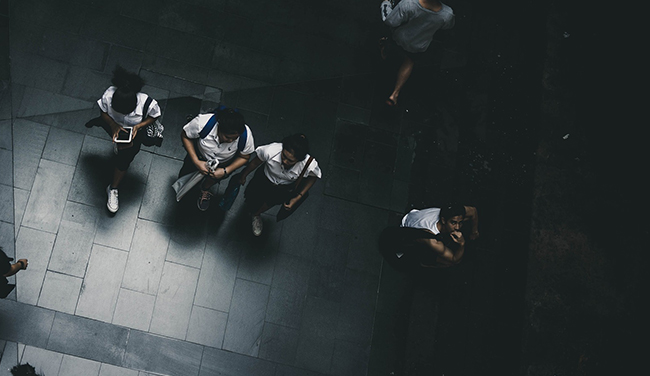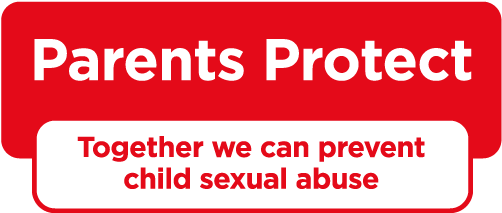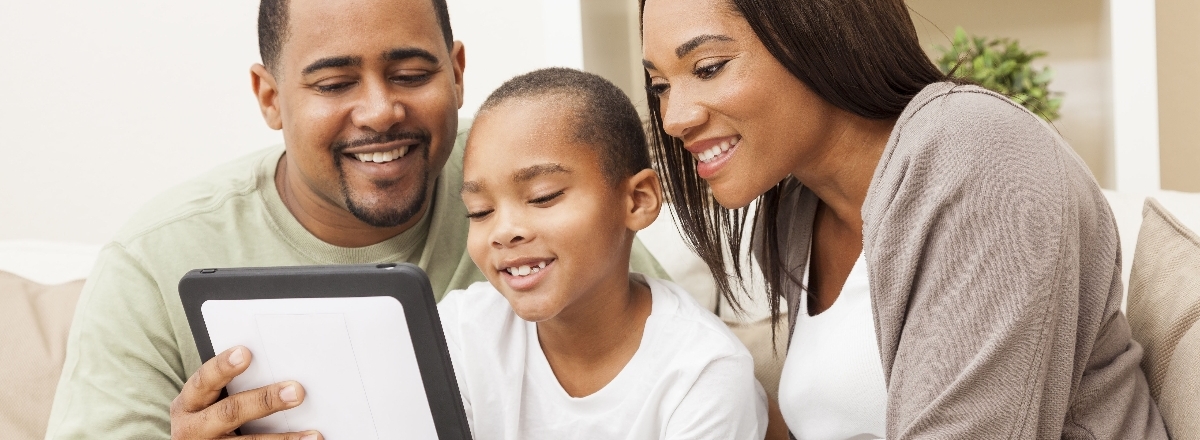Create a family safety plan to protect children
If you want to keep your child safe from sexual abuse, making a family safety plan can help.
It is important to know what is meant by a risk factor and what risk factors might look like. A risk factor is something that puts someone at risk of sexually abusing a child. It could be something like being in close proximity to a child or a child not being supervised.
There are also things that protect children - and it's important to think about the things a family can do to keep everyone safer. Examples include good communication within the family, supportive relationships and appropriate rules and boundaries. These are the building blocks of your family and provide a good foundation for developing an effective family safety plan. You can download a our family safety plan template to carete your own.
It's important to get help if you suspect something is wrong, rather than waiting for evidence of harm.
FAMILY SAFETY PLAN
The more difficult we make it for people who abuse to come between children and those who care for them, the better protected children will be.
That’s why a family safety plan is a good idea.
The first step to tackling the silence and secrecy that surrounds abuse is to develop an open and trusting relationship with our children, where things that are good and bad can be talked about. This means listening carefully to their fears and concerns, and letting them know they shouldn’t worry about telling us anything.
It’s also important to talk with them, in age appropriate ways, about relationships and sex, and to be comfortable using the words they may need. There are some great tips on this website, including the brilliant Pantosaurus resources from the NSPCC, for use by parents with younger children.
Teach them when it’s OK to say no, for example when they don’t want to play, or be tickled, or hugged or kissed.
Help them to understand what is acceptable behaviour, and that they can always tell us if someone is behaving in a way which worries them, even if they were unable to say “no” at the time.
Make sure that all family members have rights to privacy when dressing, bathing, sleeping and other personal activities. Even young children should be listened to and their preferences respected.
Find out as much as you can about babysitters, and don’t leave children with anyone you have any reservations about. If a child is unhappy about being looked after by a particular person, talk to the child about the reasons for this.
These are practical steps parents and carers can take to help protect their children.
But how do we start these sometimes difficult conversations with our children? There isn’t a one-size fits all approach, but there are some great tips on this website that you can use, and speak to other parents about ideas that have worked for them.
These SMART rules can be a good starting point for important conversations:
- S is for SECRETS - Secrets can be good fun, but if they make us sad or confused it’s best to check them out with mum or dad or someone else you trust.
- M is for MATES - Take someone with you if you are going somewhere and stay together.
- A is for ALWAYS - Always tell your parents, carer or someone else you trust where you are going, who you are with and when you will be back.
- R is for RESPECT - Respect your body and always remember it is private. No-one has the right to touch you on your private areas – the areas covered by a swimsuit.
- And T is for TELL - Tell your parents, carer or someone else you trust if someone or something makes you feel uncomfortable or frightened.
Here are some things that you and your family can do to protect children from sexual abuse:
Know the signs
- "Warning sign" is really just another way of saying "opportunity for prevention" - a chance for protective adults to recognise possible risk and to take action to safeguard children.
- Read more about warning signs
- Remember the old saying - prevention is better than cure; the most effective prevention takes place before there's a child who has been sexually abused to heal or someone who has abused a child to be held accountable
Open lines of communication
- Whether talking with a child, adolescent, or adult, about sexualised behaviours or your concerns, the conversation is just a beginning and not a one-time event
- Let everyone in the family know it is OK to ask questions. It is important for adults to set the tone for everyone by talking about the range of healthy sexual behaviours; what constitutes an unhealthy sexual behaviour and by encouraging everyone to speak up about sexual abuse
- The NSPCC has developed a guide for parents and carers to use with young children to help keep them safe. The Underwear Rule teaches children that their body belongs to them; they have a right to say no, and that they should tell an adult if they're upset or worried. Download - the guide for adults. Download - the guide for adults to use with children
- Using books can help you start these important conversations with your children. However, before you read them with your child read them through yourself first, so that you can judge if the information is appropriate for your child and to ensure you are familiar with the story. Finally, see these stories as a springboard to further conversation, discussion and continued teaching and learning. Find the list here
- Understand healthy sexual development in children as well as the sexual behaviours that may be of concern to you as a parent/carer
- Learn the warning signs of a child who may have been hurt by sexual abuse as well as the warning signs in an adult, adolescent or child who may be touching a child in a sexual way. Your concerns may be about non-touching behaviours as well (e.g. showing pornography to a child)
- Teach children the proper names for body parts and what to do if someone tries to touch them in a sexual way. Remember to let young children know that no one has the right to touch their private parts (unless for medical reasons) and that they should not touch anyone else's private parts
Set clear family boundaries
- Talk about and set clear family boundaries with family members and with other adults who spend time around or supervise the children (e.g., if a child does not want to hug or kiss someone when saying hello or goodbye then he or she can shake hands instead)
- If a child is not comfortable with a particular adult or older child then you or some other adult must let that person know (e.g., tell him or her that you don't want your child to sit on his/her lap)
- As a child matures, boundaries within the home may need to change as well (e.g., knock on the door before entering the room of an adolescent)
Get safe adults involved
- Be sure that no one in your family is isolated. Identify one or more support people for every member of the family
- Research shows that one of the key factors in a child's resilience (ability to bounce back after stressful events) is that he/she had someone to talk with and confide in. Be a safe, responsible and consistent resource person for a child or adolescent
- If someone is "too good to be true" then ask more questions - this friend or family member may not be a safe person for your child. Unfortunately, unconditional trust cannot protect children from harm
Take sensible precautions with who has access to your children
- Be aware of who is paying attention to your children and who their friends are
- Don't ignore any unease you feel about people showing interest in your child
- Obtain information about the safeguarding policy and procedures of any clubs or organisations your child may join. Ask for proof that adults working in a voluntary capacity with children have been CRB (Criminal Record Check) checked
Know your local resources and how to access them
- We have listed various resources to call/contact for advice, information and help on the useful Iinks page
- Learn about the agencies in your area. Know who to call for help and advice and how to report concerns if you learn that a child has been sexually abused
Seek help and advice - you are not alone
- If you are concerned about the sexualised behaviour of a parent, cousin, sibling, friend, or neighbour, it is important to talk with them. If you are concerned about your own thoughts and feelings towards children, help is available
- Call the Stop It Now! helpline on 0808 1000 900 to learn more about the resources in your community
- Make sure everyone knows that it's OK to talk with you about what may have already happened - that you love them and will help them.
WANT TO KNOW MORE?
If you want to know more how to prevent child sexual abuse, you can watch the rest of our short films.
If you're worried about how an adult or young person you know behaves around children, you can get confidential support from the Stop It Now! helpline: 0808 1000 900. If you’re not ready to speak to someone yet, you can use our live chat or send a secure message.

Warning signs in children and adults
It is very difficult to think that a child is being abused. If you are concerned about the way that a young person or adult is acting, read through our guide to understand how to respond.
Learn More
What to do if your child gets into trouble online
Children are able to access more dangerous content than ever online. If your child gets into trouble online, it is imporant to know how to react and support them.
Learn More
Harmful sexual behaviour among young people
It is vital that adults and carers understand what harmful sexual behaviour looks like in young people and how to respond if you are concerned about a child or young person's actions.
Learn More.jpg)
What to do if a child tells about abuse
Children frequently do not tell about abuse, but it they disclose this kind of information it is vital to respond sensitively and appropriately. Our guide aims to offer support to parents and carers to know how to act.
Learn More
